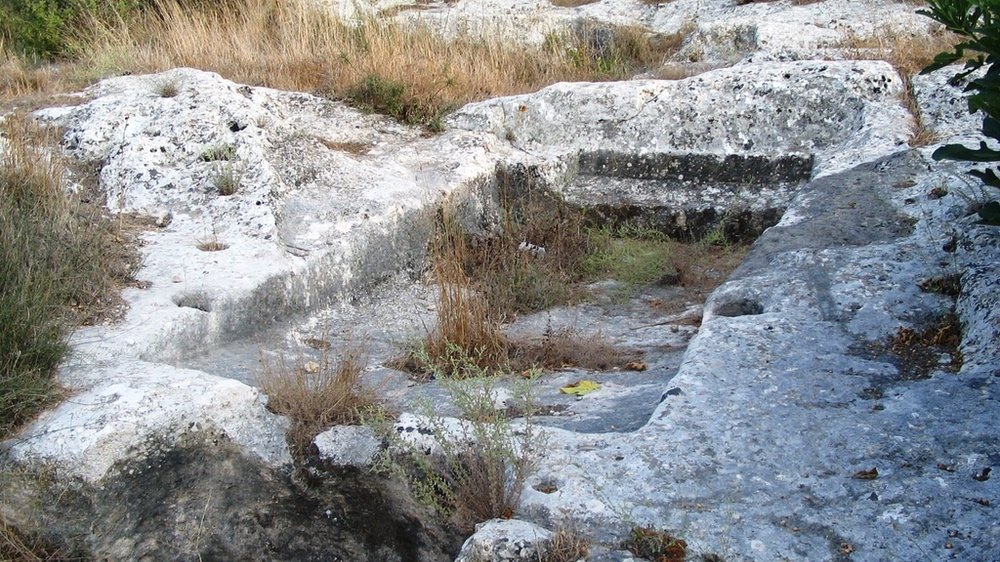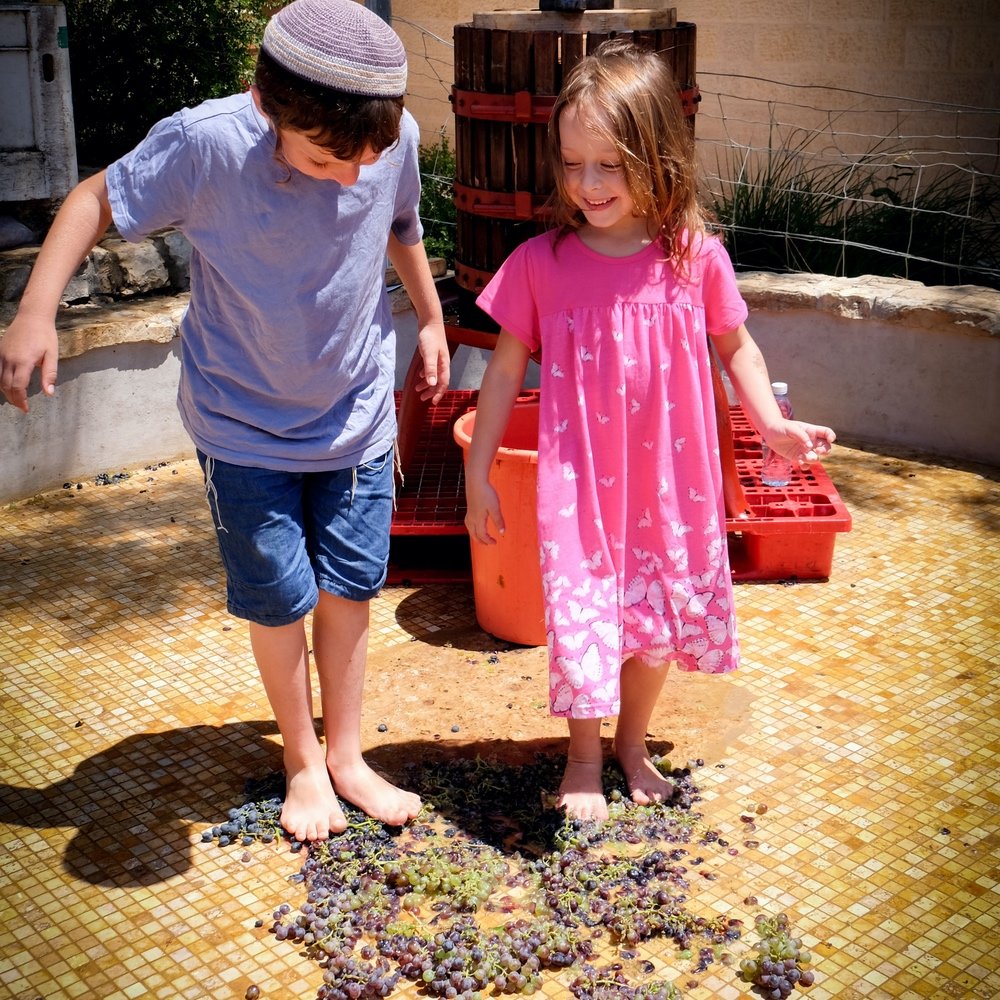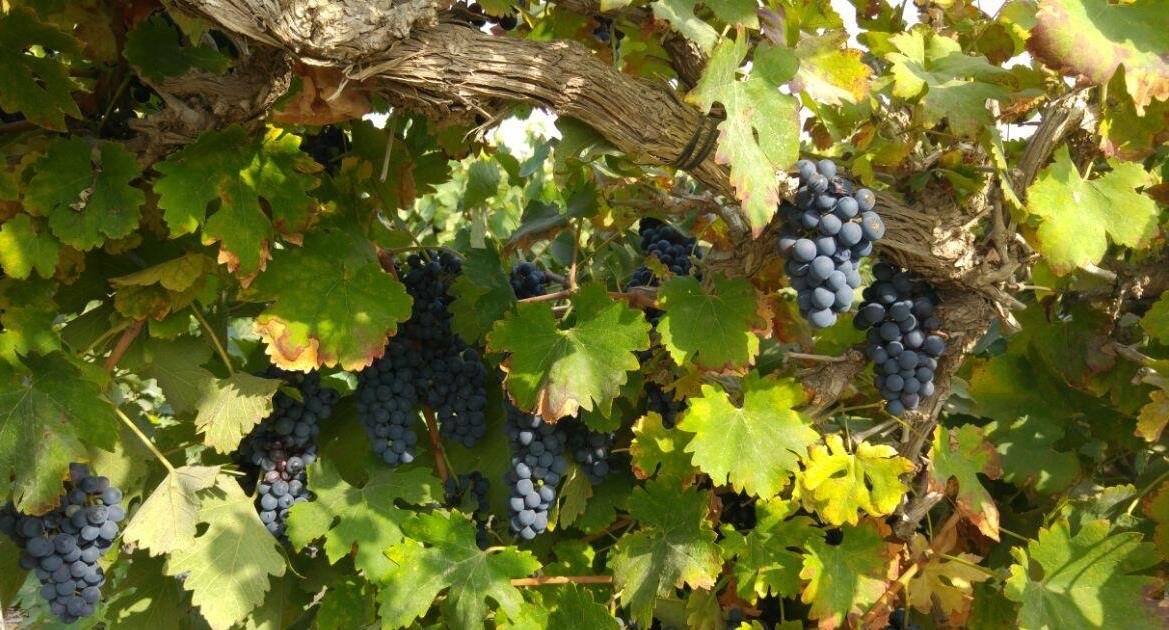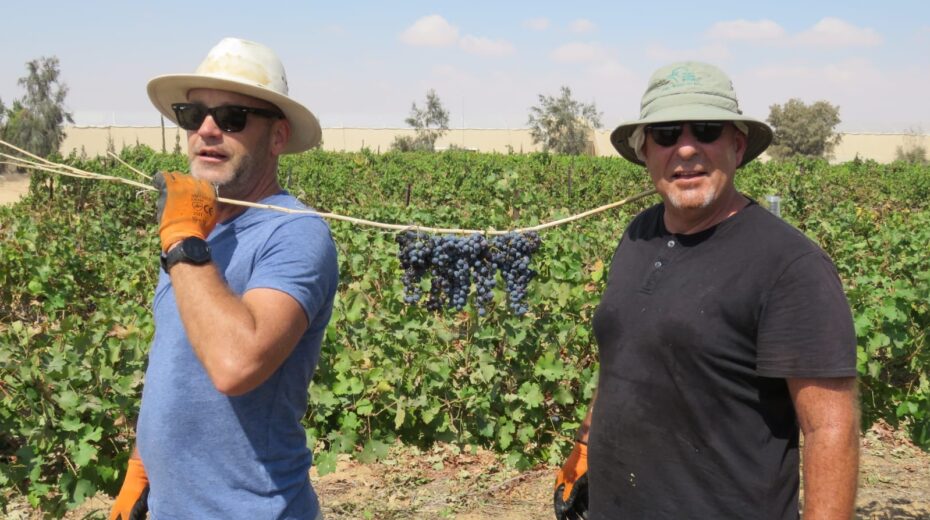For many centuries the Promised Land had not produced wine. Then in the 1800s began the regathering of Israel’s exiles and the renewal of wine-making. Now, over a century later Israel is yielding world-renowned wines.
The Hebrew scriptures contain over 200 references to grapes, grapevines and wine. The New Testament contains over 50. Why so many?
The Israeli summer is hot, dry and long – from Passover until Sukkot 6 months with nary a drop of rain from the sky! This begins to explain why that most luscious of biblical summer fruits, the grape, got prominently mentioned. Grapes ripen at the arid peak of summer in abundance. It’s hard to believe the thirsty soil has enough moisture to fill each grape to bursting with tasty juice. It’s a kind of miracle, and those 12 hot, sweaty Israelites sent in the summertime to spy out the Land were quite impressed by Canaan’s big grape clusters 3500 years ago. I can understand the thankfulness in the traditional Jewish blessing over the wine: “Blessed are you O Lord our God who creates the fruit of the vine.”
What could our forefathers do with this sudden peak of sweet provision? The four grapevines in my backyard produce such a surprising amount of fruit that even our family with five growing children can’t keep up. We don’t manage to eat all the grapes when they get ripe. The fresh grape juice (without added preservatives) will only last a matter of hours or days before its sugar content starts fermenting into alcohol. So the ancients stretched the abundance of the grape harvest throughout the year by continuing to consume the grapes as wine.

In Israel today one can still find thousands of ancient winepresses hewn out of bedrock, scattered all over the country (Isaiah 5:2), silent testimony to how widespread the practice of winemaking was in this land. There are three of these bedrock winepresses on the hill at the end of my street.
Speaking of hilltop vineyards, Isaiah 5:1-2 describes the steps for planting a vineyard on a hill in ancient Israel.
“Now let me sing to my Well-beloved
A song of my Beloved regarding His vineyard;
My Well-beloved has a vineyard
On a very fruitful hill.
He dug it up and cleared out its stones,
And planted it with the choicest vine.
He built a tower in its midst,
And also hewed a winepress in it;
So He expected it to bring forth good grapes,
But it brought forth sour grapes…” (Isaiah 5:1-2)
“For the vineyard of the LORD of hosts is the house of Israel…”
(Isaiah 5:7)
In the New Testament Yeshua of Nazareth drank wine at the Passover supper and said:
“I will not drink of this fruit of the vine from now on until that day when I drink it new with you in my father’s kingdom.” (Matthew 26:29)
Gershon Elinson/Flash90

From the 7th century, under Muslim sovereignty wine-making in this land decreased drastically since Islam does not permit the drinking of wine. Long centuries followed without the fruit of the vine being enjoyed in the Land of Israel.
With modern Zionism and the increasing Jewish presence, Israel began restoring its ancient winemaking heritage, initially focusing on sweet Sabbath wines. In the late 1800s the great Zionist philanthropist Baron Edmund de Rothschild brought varieties of French grapes to Israel to augment the indigenous ones. By the late 1900s, Israeli fine wines began to be internationally recognized for their taste and quality. The soil and the climate are right for growing grapes, and nowadays hundreds of wineries in Israel combine to produce 45 million bottles per year exporting 20%. Grapes are grown in the Galilee and Golan Heights, on the central mountains of Judah and Samaria, on the coastal plain and clear down to the border with Egypt, thanks to modern irrigation methods. Many Israeli families have a bottle of local wine on Friday night for Kiddush together with Challah bread, in a tradition that parallels Communion.
The Wine Prophecy
Over 2700 years ago, Amos prophesied in God’s name: “I will bring back the captivity of my people Israel and they shall build desolate cities and inhabit them; and they shall plant vineyards and drink their wine…” (Amos 9:14)

At Israel Today we have been caught up in this story. Several years ago, we began planting a vineyard in southern Israel near the border with Egypt to take part in this exciting restoration of fruitfulness in the Land of Israel. You too can get involved…
Join in the newest planting of vines in our Negev vineyard.
Order your supply of our Israeli red wine.
Wine was one of one of the first medicines in ancient history, and modern studies have shown that drinking red wine in moderation has positive health effects due to anti-oxidants and other factors.
As we say when raising a toast: L’Chayim! To Life!
– – –
Editor’s note:
Here is another wine anecdote for the Land of Israel, this time from the Galilee:
Jesus Changes Water Into Wine in John chapter 2 (NIV)
On the third day a wedding took place at Cana in Galilee.
Jesus’ mother was there, and Jesus and his disciples had also been invited to the wedding.
When the wine was gone, Jesus’ mother said to him, “They have no more wine.”
“Woman, why do you involve me?” Jesus replied. “My hour has not yet come.”
His mother said to the servants, “Do whatever he tells you.”
Nearby stood six stone water jars, the kind used by the Jews for ceremonial washing,
each holding from twenty to thirty gallons.
Jesus said to the servants, “Fill the jars with water”; so they filled them to the brim.
Then he told them, “Now draw some out and take it to the master of the banquet.”
They did so, and the master of the banquet tasted the water that had been turned into wine.
He did not realize where it had come from, though the servants who had drawn the water knew.
Then he called the bridegroom aside and said,
“Everyone brings out the choice wine first
and then the cheaper wine after the guests have had too much to drink;
but you have saved the best till now.”
What Jesus did here in Cana of Galilee was the first of the signs through which he revealed his glory;
and his disciples believed in him.
After this he went down to Capernaum with his mother and brothers and his disciples.
There they stayed for a few days.














